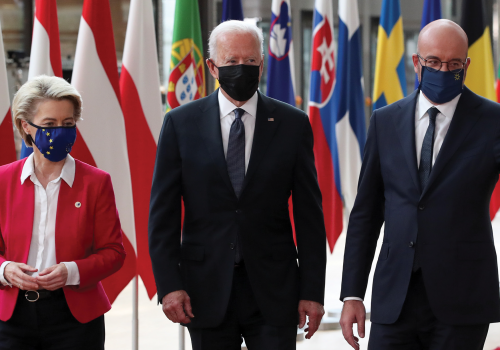Economic statecraft: Finance and money
Using economics to achieve non-economic foreign policy objectives has become a dominant strategy for great powers in the post 9/11 world. The economic statecraft kit includes a wide range of practices such as financial sanctions, coercive policies and inducements to defensive policies. In Economic Statecraft: Finance and Money, Dr. Carla Norrlöf dives into the economic statecraft involved in great-power competition and discusses how great powers use financial tools to influence each other’s behavior. The paper argues that the US and EU tend to apply financial and currency coercion to deter undesirable foreign policies due to their dominant market and currency position while rival global powers tend to rely on financial inducements to gain more allies.
Moreover, all great powers except for the dominant one are likely to pursue higher financial autonomy through exploring financial and currency alternatives while the dominant power will seek financial decoupling from other global powers for security purposes by preventing mergers and acquisitions and denying rivals investment opportunities.
The three advantages
Financial measures are the core of the geoeconomic competition because of their three main advantages – flexibility, frequency, and far-reaching character. Flexibility refers to the ease of tailoring financial measures to specific individuals or entities while frequency refers to the fact that the US does not need legislative approval to impose punitive financial measures. Lastly, sanctions are more far-reaching than export controls because the US dominates financially but no country can dominate in exports.
The future: more peaceful and less prosperous world
The use of economic means to achieve foreign policy objectives instead of military engagement is likely to result in a more peaceful but less prosperous world. As an example of this global trend, the author states that the US paused its heavy military engagement during the Obama administration and instead intensified the use of financial tools to achieve foreign policy objectives and the Trump administration continued pursuing this strategy. Although punitive financial measures hamper global economic growth, the US and EU are not likely to reduce their use to achieve non-economic foreign policy objectives. Thus, while guaranteeing less military action, financial measures might result in a less prosperous world.


